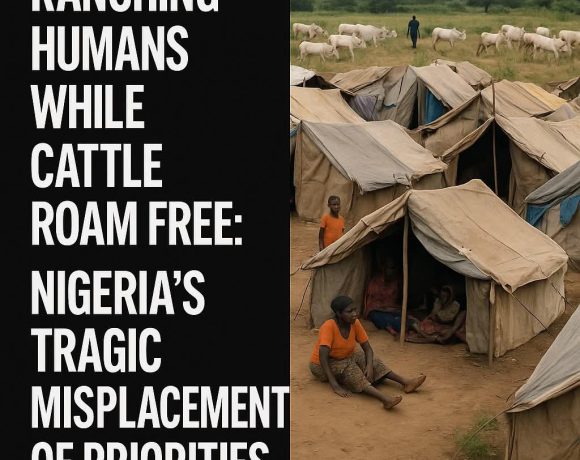From Central Asia to Africa: The Abraham Accords Enter a Global Phase of Economic Expansion

Israel
Opinion by Samuel Shay, Entrepreneur and Senior Economic Advisor to the Abraham Accords Treaty.
Kazakhstan’s accession to the Abraham Accords marks a new stage in the economic and political consolidation of the regional peace initiative launched in 2020. This is a strategic move that expands the scope of the accords deep into Central Asia and sends a clear message to other nations: the Abraham Accords are transforming from a diplomatic framework into a global economic engine.
The move is backed directly by President Donald Trump, who sees the accords as a central lever for rebuilding regional economies and deepening American influence across the Middle East, the Gulf, and Central Asia.
Kazakhstan’s joining places on the agenda a series of large – scale industrial and economic projects designed to integrate technology, energy, logistics, and regional innovation, signaling the beginning of a new wave of regional cooperation led by the United States and Israel.
General Background
The Abraham Accords are a series of normalization agreements between Israel and Arab states, launched in September 2020 under the mediation of President Donald Trump. Their purpose is to promote peace, regional cooperation, and the creation of a shared economy across the Middle East and the broader Mediterranean.
The economic results so far include official trade volumes exceeding $4 billion, with an average annual increase of around 16% between 2020 and 2023.
Why Kazakhstan Is a Strategic Key
Kazakhstan currently represents a significant candidate for expanding the accords beyond the Middle East into Central Asia. According to various sources:
- The country already maintains diplomatic and economic relations with Israel, while balancing its ties with Russia and China under a multi – vector foreign policy.
- Its participation would open new trade and investment channels, particularly through the Middle Corridor, an emerging Euro – Asian route for energy and resource transport across the Caucasus and Central Asia, reducing dependency on Russia.
- Kazakhstan’s signal to neighboring Central Asian countries positions Israel and the United States as key players in a wider regional arena, enabling the strengthening of security, technological, and environmental cooperation.
Expected Economic Impact
Kazakhstan’s accession (or even its candidacy) presents several major opportunities to advance President Trump’s vision of reviving and expanding the Abraham Accords:
1. Expanding Cross – Regional Trade and Investment Channels
- Opening new markets across Central Asia for exports of natural resources, agriculture, technology, and infrastructure.
- Developing transportation, logistics, and energy systems that connect Israel, Kazakhstan, and American partners.
- Leveraging Israeli expertise in precision agriculture, water management, cybersecurity, and med – tech within Kazakh and Central Asian markets.
2. Integrating American and Regional Investments
- President Trump has set a clear goal to reenergize the accords. Kazakhstan’s entry would remind Washington of the accords’ regional leverage and their ability to generate economic – diplomatic power.
- Energy, logistics, transportation, and resource projects in Kazakhstan would receive a substantial boost through this new cooperative framework.
3. Building a Bridge Between the Middle East and Central Asia
- Through the Abraham Accords, Israel becomes a central transit hub. The partnership with Kazakhstan can create a new economic bridge linking the Gulf, Israel, Central Asia, and even China.
- Member countries would evolve from isolated actors into catalysts for an integrated regional economy.
4. Empowering Technology and Human Capital
- Kazakhstan aims to diversify its economy beyond resource extraction.
- Israel can contribute in medtech, edutech, advanced agriculture, and cybersecurity.
- The partnership would also create regional hubs for Israeli – American companies operating in Kazakhstan and across Central Asia.
Challenges and Implementation Highlights
- Kazakhstan’s official accession has not yet been finalized; reports mention a symbolic ceremony, but not a formal agreement.
- The geopolitical constraints are complex: Kazakhstan must balance relations among Russia, China, and the West. Any expansion of the Abraham Accords requires nuanced diplomacy.
- Economic stability, structural reforms, and increased transparency are essential to attract Western investment, particularly for Kazakhstan.
- Fast – track micro – initiatives should be launched immediately: technology centers, precision agriculture hubs, and smart transportation projects can form the groundwork for broader expansion.
Key Policy Recommendations
- Rapidly map existing areas of cooperation between Israel and Kazakhstan (agriculture, water, technology) and establish a “demonstration project” under the accords with the endorsement of President Trump.
- Create a joint American – Israeli investment track for Kazakhstan in infrastructure and logistics linked to the Middle Corridor, ensuring that the accession carries real economic weight.
- Form joint task forces (Israel, the U.S., Kazakhstan) to monitor implementation and ensure consistent early – phase results.
- Utilize Kazakhstan’s accession as both a strategic and media opportunity, emphasizing President Trump’s leadership in connecting the Middle East and Central Asia to inspire other nations to join.
- Prepare a comprehensive “Economic Roadmap” detailing priority sectors (energy, transport, agriculture, digital economy), implementation timelines, funding sources (including Israel’s Private Entrepreneurship and Securitization Laws), success metrics, and oversight mechanisms.
Africa and the Abraham Accords: The Next Frontier of Global Cooperation
Africa is rapidly emerging as the next great frontier for the expansion of the Abraham Accords. With the continent’s growing demographic strength, vast natural resources, and increasing regional integration through frameworks like the African Continental Free Trade Area (AFCFTA), the stage is set for a new era of intercontinental cooperation linking Africa, the Middle East, and Asia.
The Abraham Accords offer African nations a strategic opportunity to access advanced technologies, sustainable infrastructure investments, and diversified funding sources from the United States, Israel, and the Gulf states. For many African governments, the accords could serve as a practical platform to achieve industrialization, food security, green energy transformation, and regional peace.
Several African countries have already shown interest or participation in this direction: Morocco has joined the accords and is positioning itself as a bridge between North Africa, Europe, and the Middle East. Ghana, Gabon, Kenya, and Rwanda are deepening cooperation with Israel and the United States in agriculture, fintech, and energy, aligning themselves naturally with the spirit of the accords.
The potential inclusion of new African partners would significantly reshape the continent’s economic geography. Key opportunities include:
- Infrastructure development connecting African trade corridors to Middle Eastern logistics hubs such as Dubai, Haifa, and Jeddah.
- Energy partnerships focused on solar, hydrogen, and natural gas, leveraging Africa’s vast renewable resources.
- Technology transfer from Israeli and American innovation ecosystems to African education, Agrotech, and MedTech sectors.
- Joint industrial zones linking African ports and manufacturing centers with Gulf investment and Israeli expertise.
Africa’s integration into the Abraham Accords would symbolize the continent’s shift from aid dependency to mutual development partnerships, creating a shared framework of prosperity across three continents. Under President Donald Trump’s strategic economic vision, such an expansion would mark a turning point transforming the accords from a regional peace agreement into a global model for sustainable economic diplomacy.
Kazakhstan’s potential accession to the Abraham Accords is more than a diplomatic milestone it is a gateway to a vast new economic region that allows Israel, the United States, and regional partners to build alliances across untapped territories.
President Donald Trump faces the crucial mission of reactivating the Abraham Accords as a dynamic economic force. Kazakhstan’s move sends a signal to other nations that this path is viable. If implemented effectively, it could unleash a transformative wave of development across transportation, energy, agriculture, technology, and cross – continental investment turning the accords into a genuine regional growth engine.









